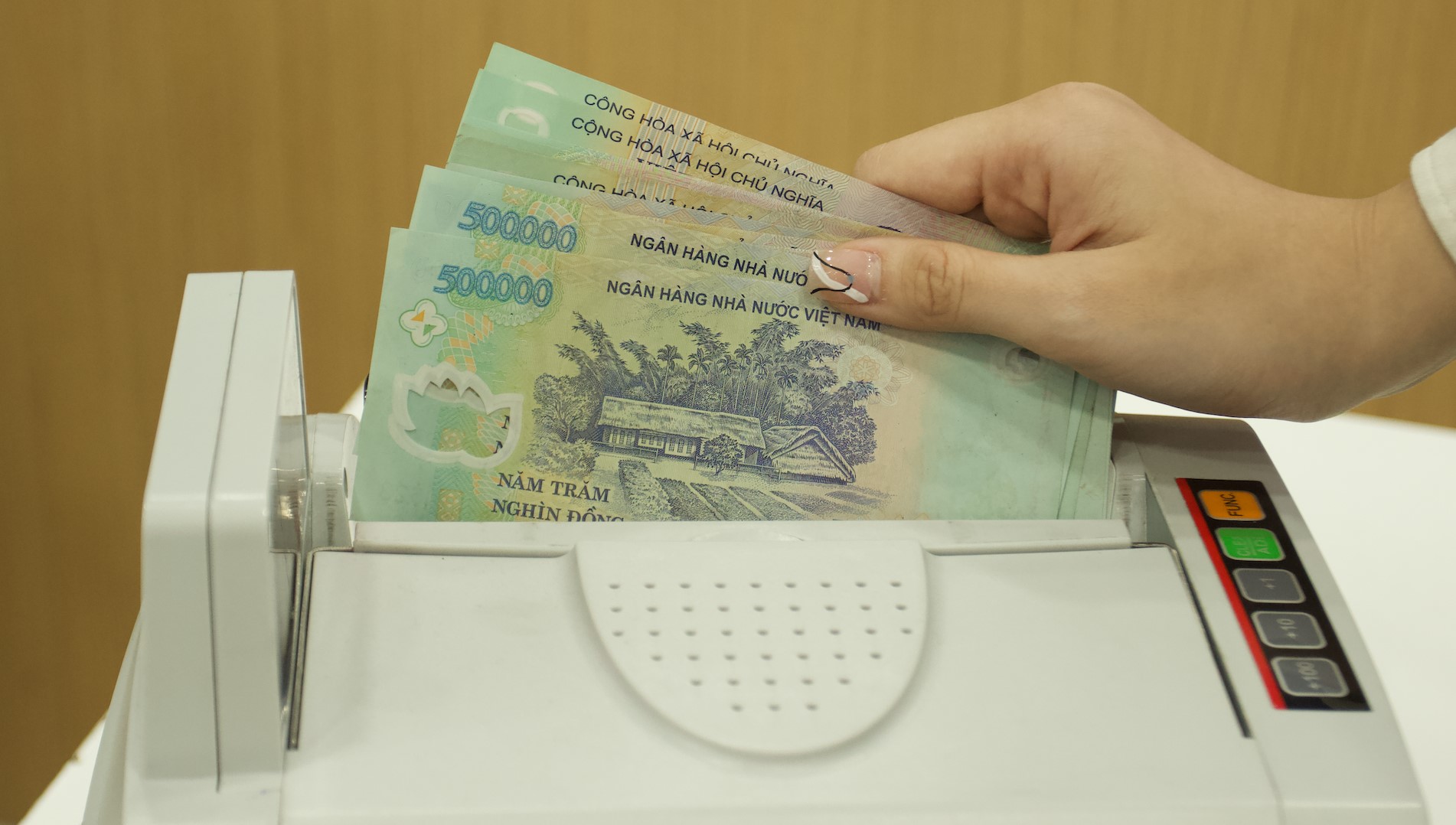The total cash reserves of Vietnam's 30 largest property developers, excluding Vinhomes, have dropped to their lowest level in five years, standing at just over VND15 trillion (US$652 million) at the end of September 2023.
Their cash reserves started dramatically declining in 2022 and then plunged to the lowest level in September 2023.
According to the latest report from Vietnam Investors Service and Credit Rating Agency (VIS Rating), a rating agency co-owned by Moody’s, both revenues and profits of Vietnamese developers fell 38 percent and 81 percent, respectively, in January-September compared to the same period last year.
Against the backdrop of the real estate market, there are still a few developers such as Vinhomes, An Gia, Nam Long, and Nha Khang Dien that can show Earnings Before Interest, Taxes, Depreciation, and Amortization (EBITDA) growth.
This is due to the deliveries of completed apartments/real estate in their large projects last year.
VIS Rating believes that the debt servicing capacity of most developers has deteriorated further due to high leverage and weak cash flows.
Developers’ total cash reserves have fallen to their lowest level in five years.
At the same time, their annual bond payments of around VND114 trillion ($4.70 billion) in 2023 and 2024 makes refinancing riskier.
On a positive note, however, developers’ ability to tap new sources of capital has improved, mainly thanks to the restructuring of banks' debt and projects.
In VIS Rating’s outlook, credit growth in the real estate business increased 22 percent in the nine-month period.
Why do they run out of cash reserves?
The total cash reserves of Vietnam's 30 largest property developers, excluding Vinhomes, amounted to VND15,824 billion ($652 million) in September this year, according to data provided by VIS Rating to Tuoi Tre (Youth) newspaper.
This includes cash, cash equivalents, and short-term investments.
In comparison, the figure ranged between VND18 trillion ($743 million) and VND22 trillion ($908 million) in 2018-22.
Their total cash has slipped sharply since 2022, dropping to its lowest level in September.
In an interview with Tuoi Tre, Duong Duc Hieu, senior director of VIS Rating, said that cash flows from operations have deteriorated dramatically since 2022 due to less cash from new property sales.
Access to bank loans is limited while developers' debt repayment date is approaching.
“The fact that cash is decreasing poses many risks for developers when it comes to refinancing, while they also have to deal with large bond maturity,” Hieu said.
He said that it is a general trend that real estate firms do not keep too much cash. Therefore, if they have cash, they invest in projects and elevate their real estate assets.
It is still difficult to assess the debt servicing ability of developers based solely on the data provided by VIS Rating, said the corporate finance expert.
Hieu emphasized that under typical business conditions, property developers, as well as the entire industry, “must maintain a cash reserve equal to their total assets to ensure liquidity."
The dwindling cash is therefore an indication of a lack of liquidity on the condition that other accounts on the balance sheets, particularly debt, remain balanced, he remarked.
Hieu also pointed to other indicators of financial difficulties.
These include a weak cash flow and a high debt to EBITDA ratio which signifies that the company’s debt is many times its EBITDA.
Many developers are under high pressure to make their bond payments and are struggling with a limited ability to pay interest, which Hieu believes indicates financial challenges.
Efforts to restructure existing debt
According to VIS Rating officials, it is normal for developers to sell assets to service their debt in the midst of an economic downturn.
Recently, such companies have been actively working on restructuring its project portfolio through mergers and acquisitions or considering transferring some of the invested capital from one project to other strategic initiatives.
This is reflected in a robust rise in cash flow for investment purposes in the third quarter of 2023, which compensated for a lack of cash for operating activities.
VIS Rating noted that recent statistics show a continued climb in the overall value of M&A activity in the real estate industry.
There have been recent reports of internal restructuring measures supported by bank credits, examples including LPBank with Hung Thinh and MB Bank with Phat Dat.
Like us on Facebook or follow us on Twitter to get the latest news about Vietnam!
















































